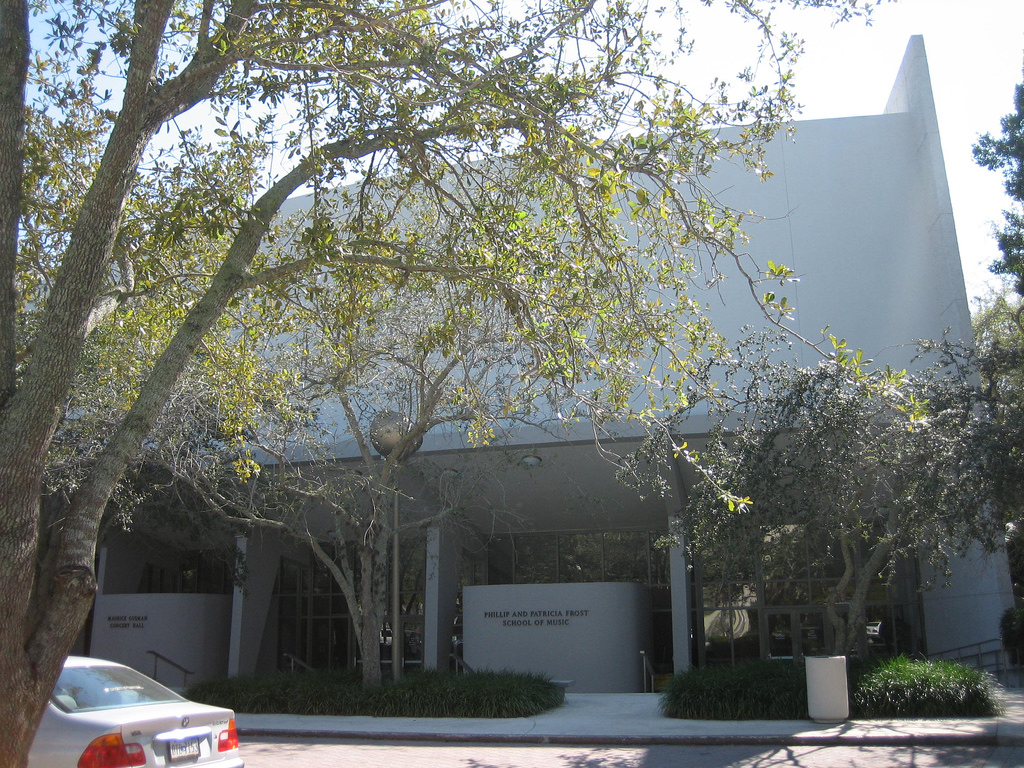
Trio’s tour celebrates 40 years of harmony
In 1977, the then-youthful trio Kalichstein-Laredo-Robinson debuted at the presidential inauguration. Then, classical music mattered more than today as a weapon of feeling and thought, as a model vehicle of presentation and class. “It was a different time, what a time it was,” the tango lyrics say. Honest, perseverant, come hell or high water, these three notable performers recently celebrated 40 years of an impeccable career, celebrating it as it should be celebrated: playing as if it were the first time, with the same spirit and dedication, as if it was yesterday.
The celebratory tour included a laudatory recital at the famous Wigmore Hall in London and, luckily—and thanks to the Friends of Chamber Music of Miami—a stop at Gusman Hall at the University of Miami last week, a good habit repeated year after year. For this ocassion, they premiered in Miami Ellen Taaffe Zwilich’s Pas de Trois, the commission they gifted themselves to celebrate their four decades together. It’s a concise piece, splendid, an ideal concert opener (and by the way, it cries for choreography). It wisely strings together allusions to jazz and the classical tradition in a fascinating exchange in which each instrument has a minute to shine — without the trio ever losing its unified sound. The trio evoked Balanchine, interacting rhythmically and in perfect harmony, in a sort of intricate imaginary dance.

Mendelssohn’s Op. 66 Piano Trio No. 2 is a chamber music jewel that underscores the composer’s importance in relation to giants such as Schumann or Brahms. The songs without words, the midsummer night’s dream and the symphony of praise, as well as his beloved Bach, , appear in the melodic line of the piano, violin and cello as a delicious constant. The second movement, an exquisite pastoral piece of the purest romantic essence, was executed exemplarily, the lead passing from instrument to instrument, without affectation or interruption, in one elegant grand gesture worth remembering.
The evening’s grand finale was the monumental Piano Trio No. 1 Op. 8 by Brahms. This was 40 uninterrupted minutes of pure music that brought to mind perhaps the only poem the Argentine writer Jorge Luis Borges dedicated to a classical composer: Brahms. “Whoever honors you must be clear and brave,” and Kalichstein-Laredo-Robinson are so. “Neither symbol, nor mirror, nor moan. Yours is the river that escapes and endures,” wrote the poet, who felt his words unworthy to sing Brahms’s glory. So, it was the task of the performers to “justify the boldness of singing the happiness of your soul in love.” They played it with lacerating intensity and rigorous youthfulness, attesting to Kalichstein’s brilliant sound and “the blue that your violins raise,” with Robinson’s cello emphasizing the required touch of tenderness and passion. Less deep-toned than usual, it was a valid approach, different, less ebony, more clear mahogany.
For the obligatory encore for the energized audience only Beethoven would do. The Adagio from Gassenhauer Op. 11 was a reminder of how much Brahms (and all of us) owe to “the deaf man from Bonn.” This is music so beautiful it hurts, just as it hurts that too few people are interested in these cultural events that enrich the local scene.
The next concerts by Friends of Chamber Music of Miami feature two piano giants — Kirill Gerstein (Jan. 24) and Benjamin Grosvenor (Feb. 16) — and the famous Ehnes Quartet (Feb. 7) and renowned Borodin Quartet with Kalichstein (Feb. 21 and 23). Do not miss them. It’ll be impossible to leave disappointed.
Sebastian Spreng is a freelance music critic and arts writer. Email him at [email protected] and follow him on Twitter @sebastianspreng.
For more on the Friends of Chamber Music of Miami, visit miamichambermusic.org.
Recent Content
-
Artsarticle ·
-
Artsarticle ·
-
Artsarticle ·

